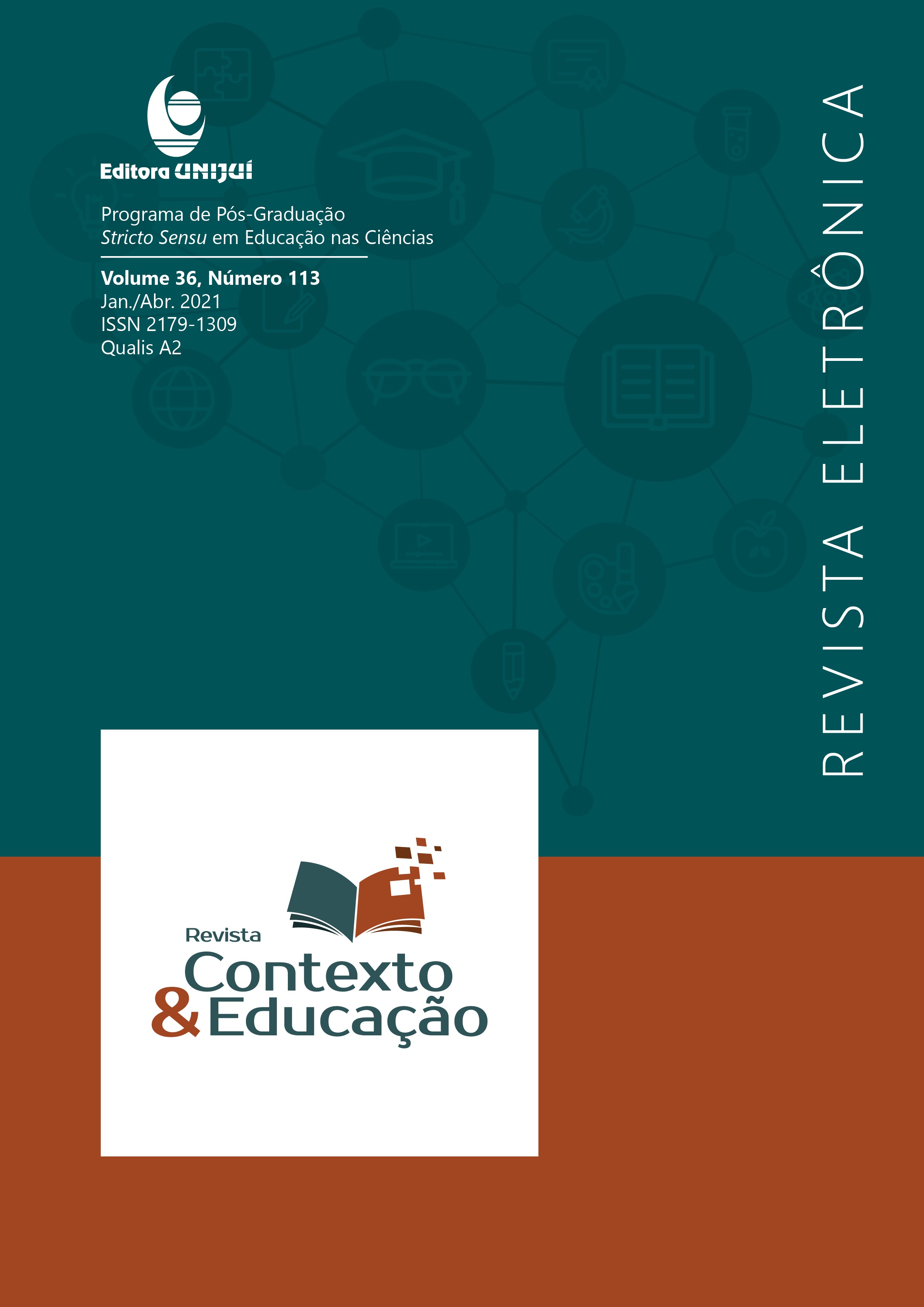A ESTRUTURA E O FUNCIONAMENTO DO ENSINO E A FORMAÇÃO ESCOLAR
DOI:
https://doi.org/10.21527/2179-1309.2021.113.11-25Resumo
Este artigo tem como objetivo analisar a estrutura e o funcionamento do ensino fundamental e médio para além da compreensão comum que se faz no campo educacional. Partimos da hipótese que a organização da unidade escolar constitui-se também no conjunto das relações humanas para além de aspectos objetivos presentes nas determinações das leis educacionais. O método utilizado tem como proposição investigativa a teoria crítica na interpretação e análise dos fundamentos filosóficos da estrutura e funcionamento do ensino. Os resultados indicam que na área da educação escolar a legislação escolar encontra-se dentro do jogo que se produz na interface entre os sujeitos, na legalidade e legitimidade instituídas por um não saber, mas que opera como ajuste no ordenamento da unidade escolar. Conclui-se que as práticas institucionais escolares podem ser interpretadas como a forma política da organização da unidade escolar como algo que adere à legitimidade e resulta em ações quando os sujeitos implicam a Lei e, principalmente, submetidos à autoridade. Toda a estrutura e funcionamento da unidade escolar deveriam pautar-se numa gestão que seja democrática, principalmente, em dar voz a todos aqueles que têm algo a dizer sobre o seu modo de existir e pensar no campo da cultura.
Downloads
Publicado
Como Citar
Edição
Seção
Licença
Ao publicar na Revista Contexto & Educação, os autores concordam com os seguintes termos:
Os trabalhos seguem a licença Creative Commons Atribuição 4.0 Internacional (CC BY 4.0), que permite:
Compartilhar — copiar e redistribuir o material em qualquer meio ou formato;
Adaptar — remixar, transformar e criar a partir do material para qualquer fim, inclusive comercial.
Essas permissões são irrevogáveis, desde que respeitados os seguintes termos:
Atribuição — os autores devem ser devidamente creditados, com link para a licença e indicação de eventuais alterações realizadas.
Sem restrições adicionais — não podem ser aplicadas condições legais ou tecnológicas que restrinjam o uso permitido pela licença.
Avisos:
A licença não se aplica a elementos em domínio público ou cobertos por exceções legais.
A licença não garante todos os direitos necessários para usos específicos (ex.: direitos de imagem, privacidade ou morais).
A revista não se responsabiliza pelas opiniões expressas nos artigos, que são de exclusiva responsabilidade dos autores. O Editor, com o apoio do Comitê Editorial, reserva-se o direito de sugerir ou solicitar modificações quando necessário.
Somente serão aceitos artigos científicos originais, com resultados de pesquisas de interesse que não tenham sido publicados nem submetidos simultaneamente a outro periódico com o mesmo objetivo.
A menção a marcas comerciais ou produtos específicos destina-se apenas à identificação, sem qualquer vínculo promocional por parte dos autores ou da revista.
Contrato de Licença (para artigos publicados a partir de outubro/2025): Os autores mantém os direitos autorais sobre seu artigo, e concedem a Revista Contexto & Educação o direito de primeira publicação.


